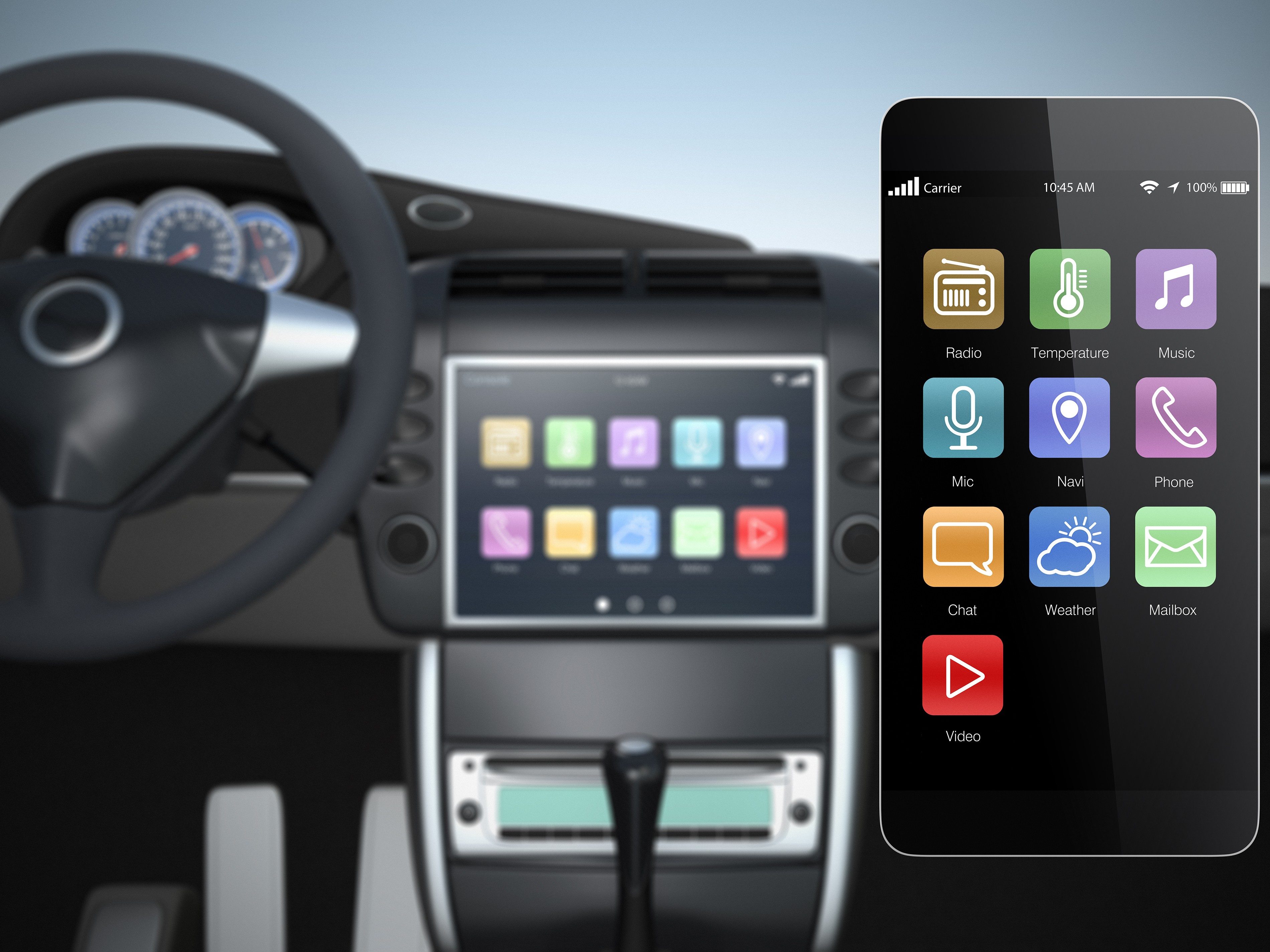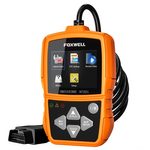5 New Features that Turn Your Car into a Smartphone on Wheels
Once the realm of science fiction, these innovative car features are quickly becoming standard issue. Here are five ways new cars are smarter than ever before-and why that should concern you.

Cars are no longer just a solution to take us from point A to point B. In today’s world, where we’re more connected to our homes, families, work and friends, our vehicles are also keeping up with advancing technologies. The modern car can help (literally!) steer us down the right path.
An array of smart and interactive car accessories are transforming the way we drive. Here’s what could very likely come standard in the next vehicle you buy:
1. Smart safety features.
Proximity sensors to warn you of hazards ahead on the road, automatic-braking, and park assist are just a few of the technological advancements being included in new vehicles.
2. Smart vehicle maintenance information.
Digital messages can let you know about looming maintenance issues like worn brake pads, a brake light that is about to burn out, or other problems well beyond what most current vehicles can “sense.”
3. Location information.
Based on your specific location, your car will be able to provide suggestions for local restaurants, attractions and hotels in the area.
4. Communication.
You will be able to connect to other devices, including other cars, phones, computers, home appliances and thermostats.
5. Data tracking.
Information about vehicle speed, usage and driving habits will be collected by your vehicle. Among the uses for this information are usage-based insurance policies which set premiums based on driving behaviour.
While our cars might be able to do more for us, what will it mean for our privacy? Vehicles are increasingly capable of transmitting information wirelessly, leading to questions about privacy and security.
Many manufacturers are planning to collect this information, but the Canadian Automobile Association (CAA) believes that as the driver, you should have the ability to control what information is shared and where it goes. Among other things, the CAA recommends that vehicles should be built with a clear menu so consumers can opt-in to share the information they want to with the automaker or other service provider, such as a garage.
While some of these technologies may seem futuristic, there are currently data-collecting capabilities that car vendors use every time a car is serviced. Vehicles have been collecting limited repair data for years. The big change ahead is that much more information will be collected, and that information will be capable of being transmitted wirelessly to your vehicle manufacturer.



